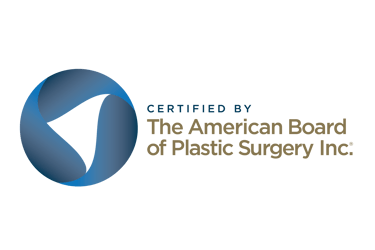How to choose a plastic surgeon
1. Check Board Certification
Start by confirming that your surgeon is board-certified by the American Board of Plastic Surgery (ABPS). This credential ensures they have completed rigorous surgical training and met nationally recognized standards of safety and skill.
Did you know? The American Board of Medical Specialties (ABMS) recognizes 24 boards that represent various medical specialties, including the American Board of Plastic Surgery (ABPS).
You can check whether your plastic surgery is certified by the ABPS here.
Dr. Khansa has been board-certified by the ABPS since 2020.
Learn more about Dr. Khansa here.
2. Review the Surgeon's Training and Experience
Plastic surgery is a broad specialty. Look for a surgeon who regularly performs the specific procedure you’re considering, whether it’s breast augmentation, facial rejuvenation, or reconstructive surgery. Look for a surgeon who has trained at reputable training programs.
Dr. Khansa has performed thousands of cosmetic and reconstructive procedures, on adults and children. He trained at some of the top institutions in the world:
-Undergraduate: BS in Biomedical Engineering - The University of Wisconsin - Madison (2003-2007)
-Medical school: MD - Harvard Medical School, Boston, MA (2007-2011)
-Residency: Plastic and Reconstructive Surgery - The Ohio State University Wexner Medical Center, Columbus, OH (2011-2017)
-Fellowship: Craniofacial and Pediatric Plastic Surgery - University of Southern California and Children's Hospital Los Angeles, Los Angeles, CA (2017-2018)
3. Prioritize Safety and Accredited Facilities
Your procedure should be performed in a fully accredited surgical center or hospital with appropriate anesthesia and emergency protocols. Accredited facilities adhere to strict safety standards and provide peace of mind.
4. Understand the Recovery and Follow-Up
Ask about the expected recovery timeline and follow-up care, including how the surgeon supports you after surgery. Comprehensive post-operative care is key to safe healing and optimal results.
5. Most Importantly, Pay Attention to How you Feel with the Surgeon. Trust your heart!
Before you sign-up for surgery, assess how comfortable you feel with the surgeon. A trustworthy surgeon will listen carefully to your goals, explain realistic outcomes, and answer all questions clearly. Communication and trust are essential for a positive experience. A trustworthy surgeon will also be transparent about potential complications.














